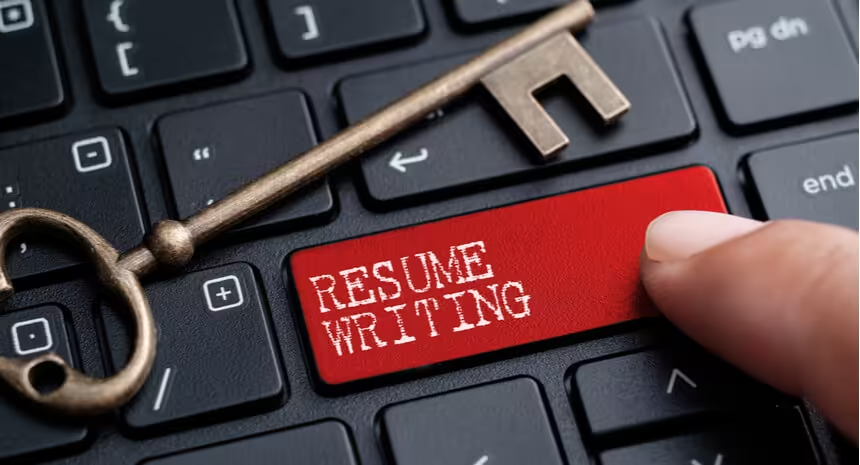Table of contents
- What kind of questions are asked in a job interview?
- “Why should we hire you for this position?”
- How many questions should be asked in an interview?
- About the timing of "do you have questions for us?"
- Why your questions for the employer matter
- Now for some possible good questions to ask
- And now some not so good questions to ask
- A note of caution
- Some final thoughts
At the end of a job interview, you are almost always asked if there are any questions you want to ask the employer before you leave. While there are many good answers to this question (and a few bad ones), even more important may be the way you handle your answer!
I’ll explain more about “handling” your answer soon, but first a quick word about the timing.
What kind of questions are asked in a job interview?
Before we get ahead of ourselves, let’s briefly go over the kind of questions that employers ask. Your interviewer will ask you questions about your experience, how you handle problems, and general questions about yourself. Lastly, the interviewer will inquire as to whether or not you have questions for them. This is a crucial moment in the interview.
A side note: Congratulations on making it to the interview stage. It’s always a good idea to continue applying for other jobs – even once you snag an interview for your dream job. Our Resume Builder can help you create resumes for new job applications in no time at all, with expert writing tips and text suggestions for all resume sections.
“Why should we hire you for this position?”
This is a common question that the employer will likely ask you. Do your homework ahead of time to learn the ins and outs of the role and how you could contribute to the organization’s overall goals. In your answer, think about what the company needs and explain why you’re the person who can do it.
How many questions should be asked in an interview?
Every interview is different, so the number of questions varies. At the very least, expect five thought provoking questions. However, you may hear upwards of a dozen questions while you talk. Be prepared to answer everything that comes your way.
About the timing of "do you have questions for us?"
Look. We all know interviews are stressful. Question after questions about you. So by the time you reach the end of that interview, you may have already started winding down from interview mode – and are now thinking about being free at last of the interview focus and pressure.
But that is exactly the time for you to be alert, energized, and very in the moment – and to get your brain fully back to the interview.
Why your questions for the employer matter
No matter what you’ve said in an interview or how great your credentials are, when we sit in a room afterward and discuss which candidates to bring back, the ones who leave the best impression are the ones we remember most.
So don’t make the mistake of thinking “well, I gave great answers already” and therefore you ease up just as the interview draws to a close. This is the time when you can leave them with a feeling that you are someone who is exactly the bright, resourceful, energetic person they want to add to their company.
And so how you ask your questions of them – one of the last things they’ll remember about you – can be as important as the questions themselves.
Now for some possible good questions to ask
I’ve never had any specific kinds of things I’m looking for when I ask a candidate if they have any questions for us. But I do like to see how they respond. And it’s a big plus if you come up with something that shows you are thinking ahead about the job and / or the company.
But this is also a chance for you to decide if the job and company are right for you. So don’t be afraid to ask questions that give you some feel about what it would be like to work there – and what they really expect, apart from anything in the job description.
Some questions you might decide to use, assuming they haven’t already been answered in the earlier part of the interview”
- How does this position fit in with the rest of the company/organization?
- Is this a new position?
- If so, what made you decide to create it?
- If not, are you changing it in any way now?
- What would a typical work day/week be like for me?
- After I start, what would the first few weeks look like for me?
- Are there any special projects coming up you’d like me to work on?
- Where do you see this department / company going over the next year?
- What would a successful employee (hopefully me) make happen for you?
- If I may ask, how long have you worked here? What do you like most about it?
Here are some more:
- How would you describe the company’s management style?
- How would you describe the company culture?
- What would you say employees like most about working here?
- Is there anything employees would say they like least?
- What kinds of things would you expect of me to enable me to advance within the company?
- What kinds of advancement opportunities are there for someone in this position?
- Is there anything else at all that I can tell you about myself to help you in your decision?
- What can I expect as far as next steps?
- If I do get the job, how soon would you like me to start?
Oh … and you probably only need 2 or 3 questions. You don’t want to grill your interviewer!
And now some not so good questions to ask
How much time off would I have? (You can ask about all benefits later, when you’re close to an actual offer. Try not to not emphasize that you can’t wait to NOT be working.)
Where do people usually eat lunch? (Once again, try to stay away from questions about times when you are not working. Although, I will also add that if the interview is going really well, and has been informal, you MIGHT throw in a question like this just to leave a warm smile. But only if it feels right.)
I read that you used to work for DJT Company. Why did you leave? (Stay away from personal questions. If you find you both have an interest in tennis, for example, mention it casually DURING the interview, not as a direct question that puts the interviewer on the spot.)
Any question that you could easily find out from doing a little online research. (Don’t waste their time with filler questions. If you really can think of nothing good to ask, then just say “No. Not at this time.”)
A note of caution
It might be tempting to try to wow the interviewer with the most clever or amazing questions. I caution you to remember that an interview is, in the end, about the employer and whether you meet their needs.
So if your question makes them uncomfortable even for a second, you may have undone all your hard work. It raises questions about what you’d be like to work with – and whether you really take the needs of others into account. Or it simply leaves a question about your judgment when working for them.
So by all means be creative and come up with original questions, but remember you’re not trying to win a game of out-clevering the interviewer – you’re trying to win a job!
Some final thoughts
There are still jobs that you can get without having any great questions. But why give anything less than your full effort or miss a chance to engage them in future thinking?
So when you’re going through your interview preparation steps, remember to come up with a few possible questions to ask the interviewer. And, if any ideas for questions come up during the interview itself, make a note of them (good to have a pad and pen in front of you), and ask them at the end.
In fact, questions that arise from the interview itself are often the best. They show you were actively listening, are interested, and are able to follow up on such things, as you might in an actual job.
Good luck!
Was this information about How To Handle “Do You Have Any Questions For Us?” In A Job Interview helpful? Let us know!
At Resume-Now, we firmly believe that all jobseekers deserve access to the best expert knowledge and job-winning resume tools on the market today. To accomplish this, we’ve handpicked a team of diverse experts to offer advice for jobseekers from every imaginable angle.Our team of recruiters, human resources professionals, certified resumes writers, and award-winning journalists have pooled their knowledge to create a toolbox of tips and resources for today’s jobseeker. Together, they share their unbeatable wisdom to make resume writing effortless, and the job search a little less painful.Resume-Now offer help for entry-level workers, executives, and everyone in between. You can get the job you want with a little help from Resume-Now!
More resources

How to Write a Resume: Guide & Examples for 2025
If you re wondering how to write a resume that grabs attenti...

Should You Put Your Address on Your Resume? (Guide + 5 Example Resume Headers)
Should you put your address on your resume? We ll answer you...

Director of Operations Resume: Examples, Templates & Tips for 2025
Ready to explore an exciting new role as a director of operati...

Professional Tutor Cover Letter Sample & Writing Guide
Write a tutor cover letter that gets interviews. Use our writi...

Free School Guidance Counselor Cover Letter Templates
Showcase your passion for guiding your students in a compellin...

